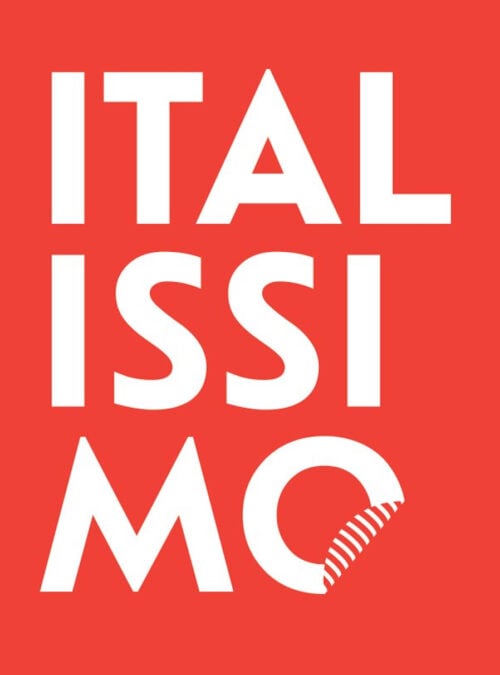Interview with Rocco Femia, founder and editor of Radici, the bilingual magazine for Italian enthusiasts
Author: Paolo Grossi

Rocco Femia, publisher and journalist, studied law in Italy before moving to France, where he has lived for over thirty years. Founder and editor of the bilingual magazine Radici, he has several publications to his credit and has collaborated with numerous Italian and French newspapers. He is the producer of musical shows on cultural themes dedicated to Italy, such as Italiens, quand les émigrés c’était nous; Les Ritals; Et si on chantait la paix; La Lettre.
What is Radici and what was the career path that led you to create and edit this magazine?
I was born in Calabria, where I lived until I was 18. I studied law in Puglia, in Bari. Writing has always been a passion of mine and, after various professional experiences and my arrival in France in the mid-1990s, I founded the magazine Radici in 2002, with the ambition not only of cultivating the memory of the Italian past in France, but also, and above all, to be a vehicle for knowledge of today’s Italian language and culture in all its facets.
Your commitment is not limited to the management of the magazine, but also extends to the theatre…
Artistic production is another important part of our cultural activity. We have produced musical shows based on cultural themes dedicated to Italy, such as Italiens, quand les émigrés c’était nous, a hymn to tolerance and brotherhood based on the most beautiful traditional and popular songs dedicated to the immense migratory exodus of Italians around the world. Then a tribute to Italian cinema with Les inoubliables musiques du cinéma italien. The greatest soundtracks of our cinema, performed live by an orchestra, against the backdrop of excerpts from these masterpieces of the seventh art. Sequence after sequence, I tell stories and anecdotes in a show that is not only grandiose, moving and lively, but also entertaining and instructive. In short, unforgettable! In 2018, I created Et si on chantait la paix? a premonitory, alas, and highly topical show. Based on songs by Italian authors such as Fabrizio De André, Francesco Guccini, Ivano Fossati, Pierangelo Bertoli, Francesco De Gregori and others. At the same time, the tour of Les Ritals, a theatrical adaptation of François Cavanna’s book with actor Bruno Putzulu, began. The show was a phenomenal success, with over 220 performances.
The latest show, currently being created, is a co-production with the Théâtre Le Grrranit – Scène nationale de Belfort: La Lettre, a play written by Mario Putzulu, again with the actor Bruno Putzulu, in which I also star! When brothers Mario and Bruno Putzulu asked me to produce this new play, I felt like a ‘passeur’ between two souls dominated by an infinite love for Sardinia, their father’s homeland. As much as I – a producer who has made Italy, its history and its moods the very subject of his work – could wish for.
Who are the readers of Radici and what is your relationship with them?
The magazine offers a unique perspective on current affairs and Italian culture. This is what appeals to our readers, who are all passionate about Italy. Some are former Italian emigrants, second or third generation descendants, but more generally those who read Radici love Italy, its culture, its way of life and its language. Young readers are increasing in number and Italian teachers in secondary schools are happy to use our articles with their pupils. We have a very strong bond with our readers, who are enthusiastic and very loyal.
Radici is a bilingual magazine: why this choice and how is it implemented?
The magazine covers a wide range of topics: current affairs, itineraries to discover the regions and sites of the Peninsula, art, literature, great Italian personalities, history, the history of emigration, gastronomy, politics and so on. Some articles are written in French, others in Italian, and the latter have a glossary in the margin of the page to facilitate reading in Italian. Of some articles we also offer online translation through a QR code that accompanies the text.
What space does Radici dedicate to promoting Italian books?
We regularly publish interviews with Italian authors, and we also have a Books section in which six books related to Italy, translated from Italian or written by French authors, are presented in each issue.
Have you ever thought of publishing Italian books in French yourself?
In 2011, on the occasion of the 150th anniversary of the Unification of Italy, our publishing house dedicated one of the most important historical works written in recent years on Italian emigration in the world: Italiens. 150 ans d’émigration en France et ailleurs. This work is by far the best-selling book of our publishing house, with more than four editions. We have published other works, all of course with an Italian theme: the Italian Resistance, Verdi, Italian cinema, tales of emigration, etc. And we will soon publish a novel by singer-songwriter Pippo Pollina, L’Autre, which has been a great success in Italy, German-speaking Switzerland and Germany.
Finally, could you tell us the title of a recent Italian book that you would like to see translated into French?
The list would be too long. But we are about to complete the French translation of Lorenzo Tosa‘s latest book, Vorrei chiederti di quel giorno (Rizzoli). It is the story of his father, who committed suicide when the author of the book was two and a half years old. But it is also the story of the politics and protest of the 1960s and 1970s, and how those years led to the 1980s. It is the story of the collapse of the self and, at the same time, of a generation losing its innocence. Of fathers and sons, of mental health that must be faced, of scars and walls that must be torn down.










